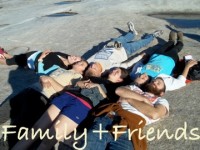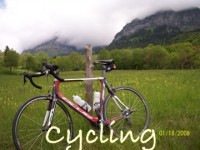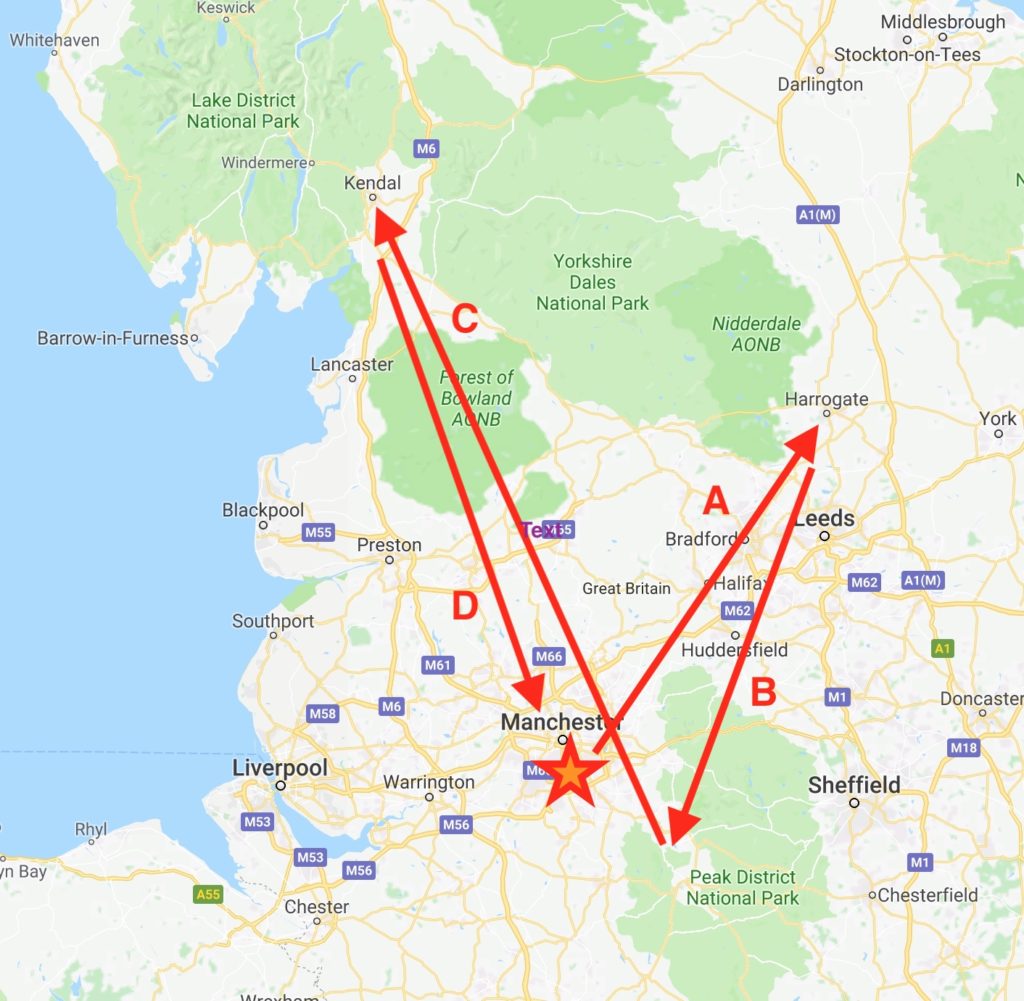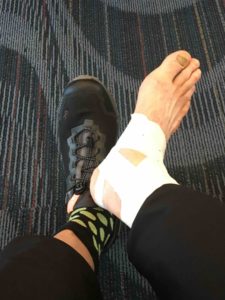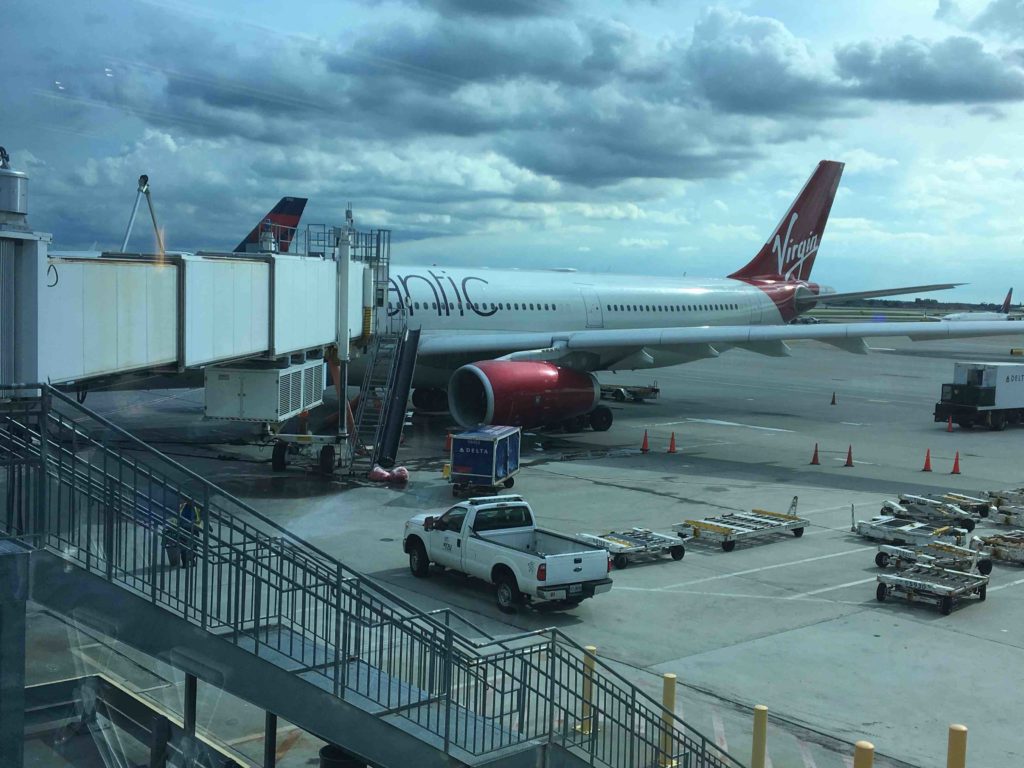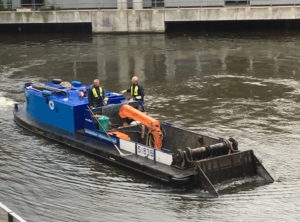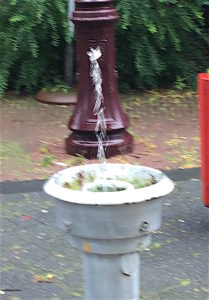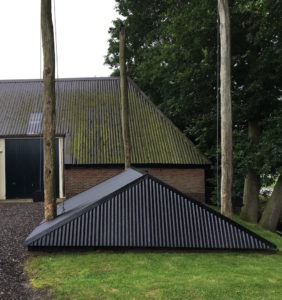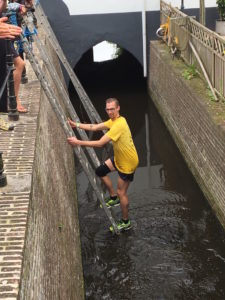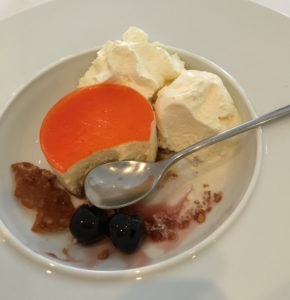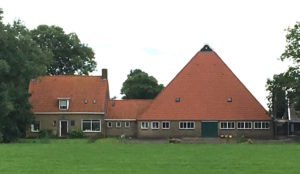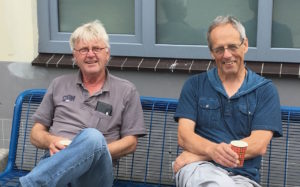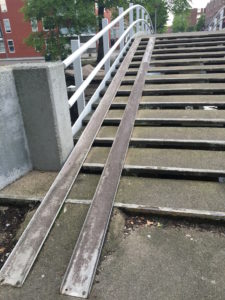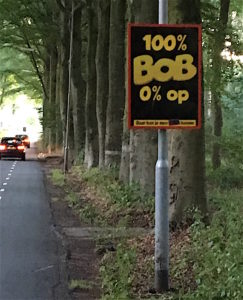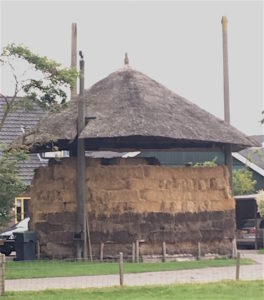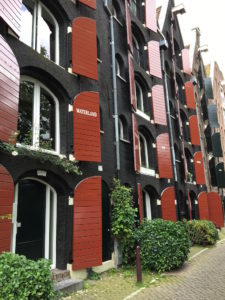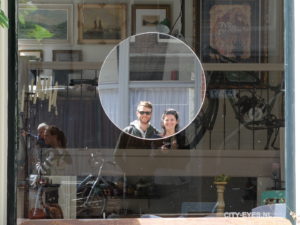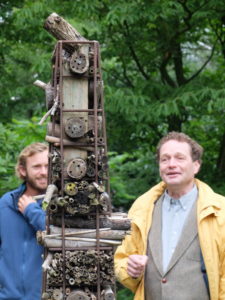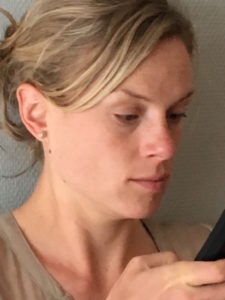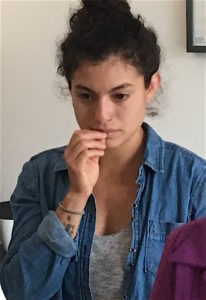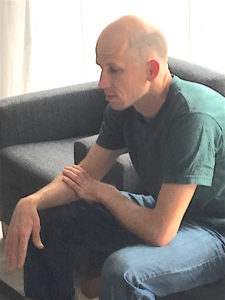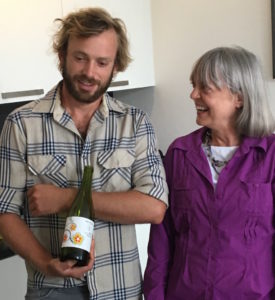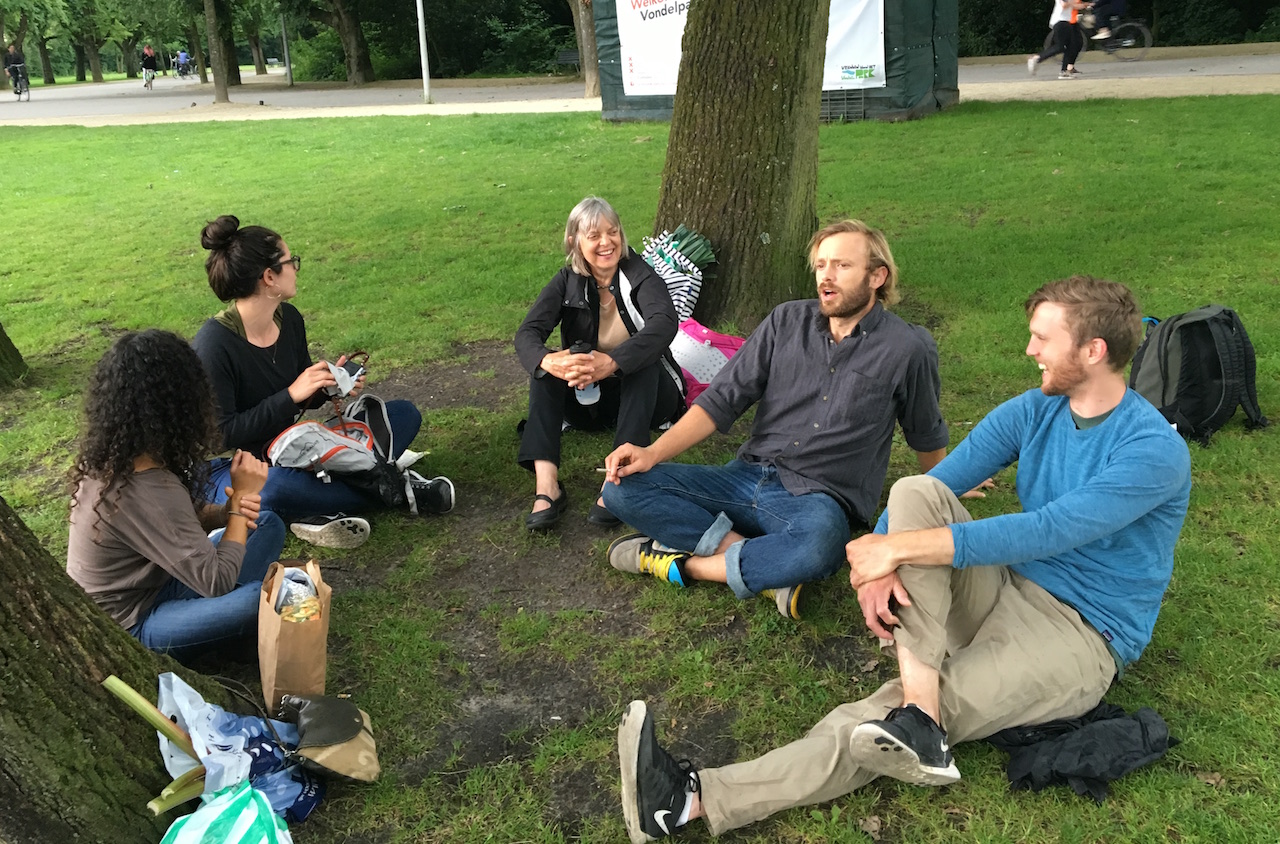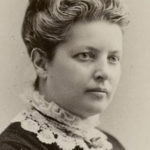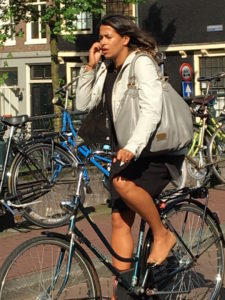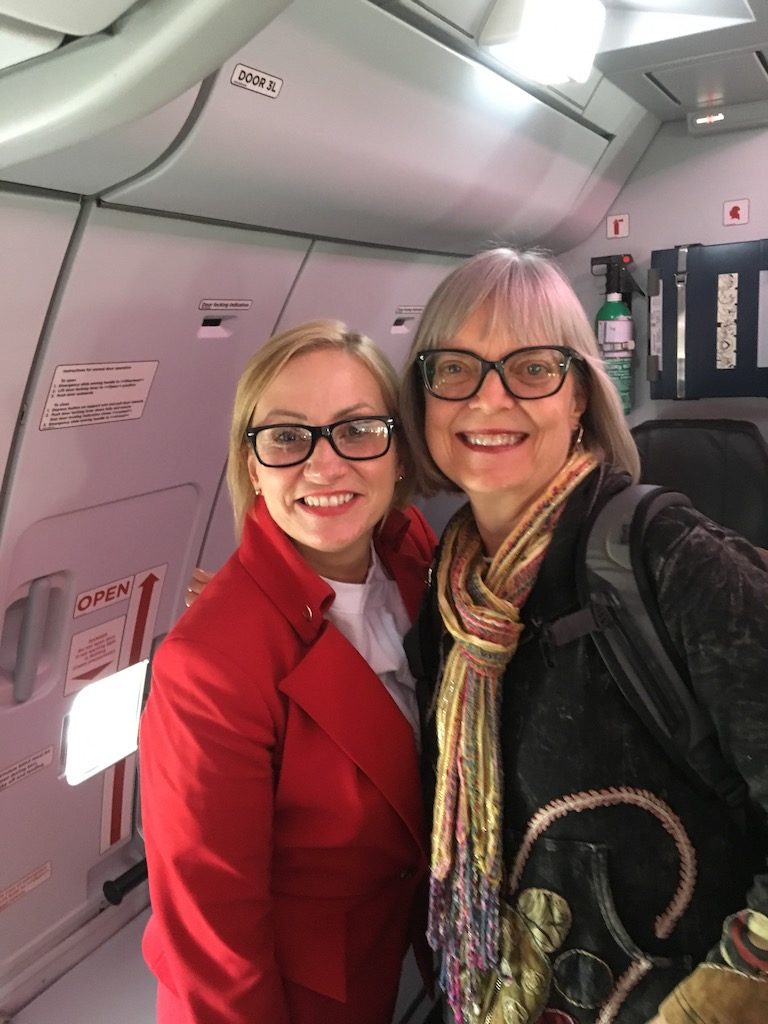
We had not yet left U.S. airspace when I had my first encounter with Brit-speak. A flight attendant came down the aisle and asked if we needed a London Ticket. What? A London Ticket.
“We’re from the U.S.” said Betsy helpfully.
“Yes,” said flight attendant, as if that ended the conversation, and began to count out two cards.
“But we’re going to MANCHESTER!” I added not quite out loud.
She handed us the two cards which were labeled in bold letters “Landing Ticket”. I would have described them as as “Customs Declarations” in American, but, whatever, I was instantly glad I had not explained my earlier thinking to her.
After some Ambien-fueled sleep, we had a chance to speak with her at length and learned she is from Leeds, about 20 miles from Harrogate, where the wedding will be held. We admired her delightful accent, and she laughed and explained that people from Leeds, and Yorkshire in general, have quite a distinct way of speaking—unless you are from Harrogate. Harrogate is pronounced “HAR-uh-gut” if you’re from Leeds or elsewhere, but “har-aah-GATE ” if you’re from Harrogate—and therefore deemed pretentious.
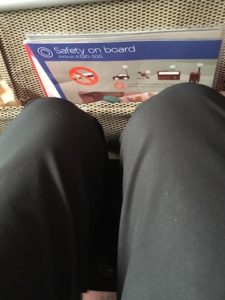
Re. Virgin Atlantics perks: that extra 3″ we upgraded for didn’t really amount to much–unless I think of the alternative.
Hmm, I’m going to have to keep a low profile until I’m more confident with this Brit-speak thing. And this is going to be more complicated than I expected…..

